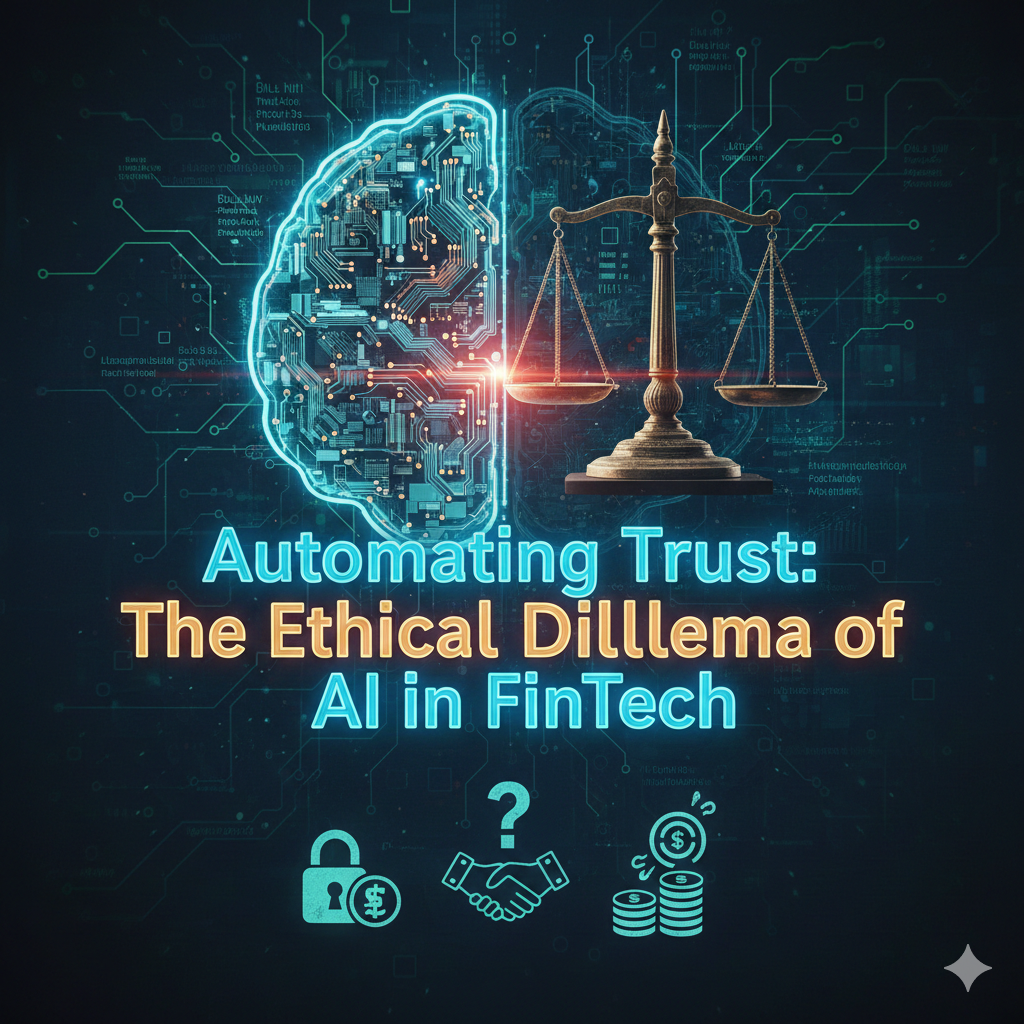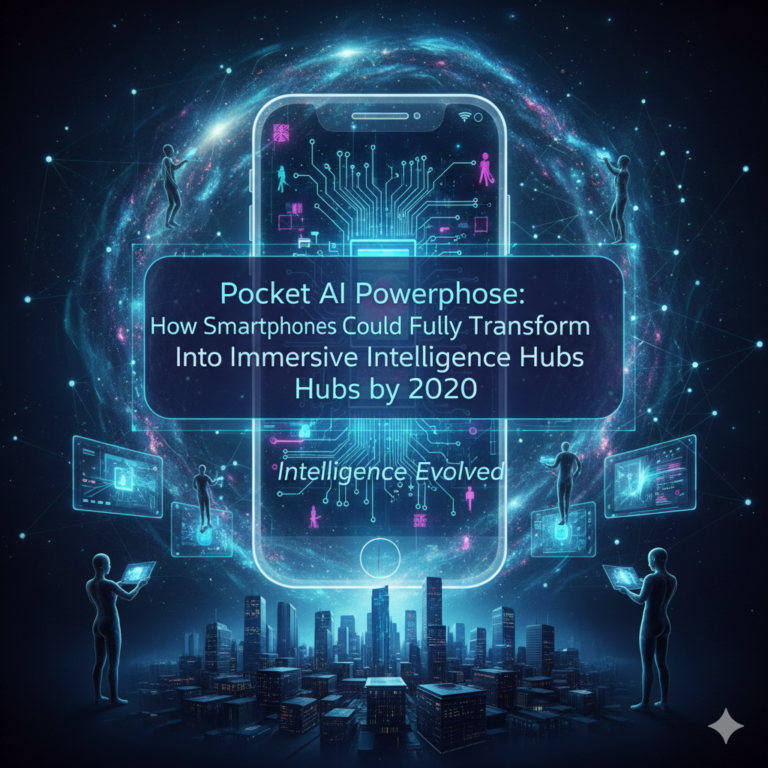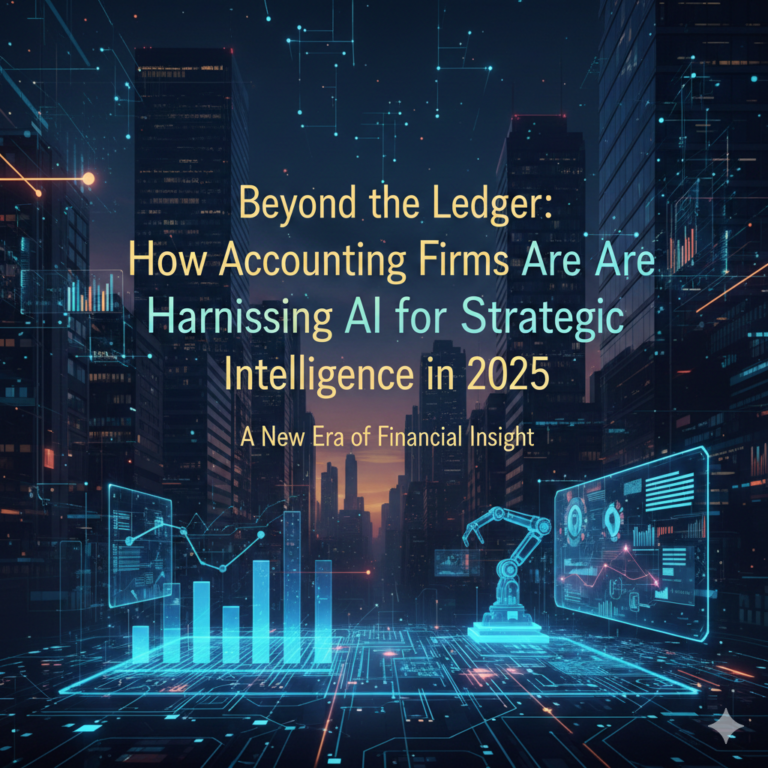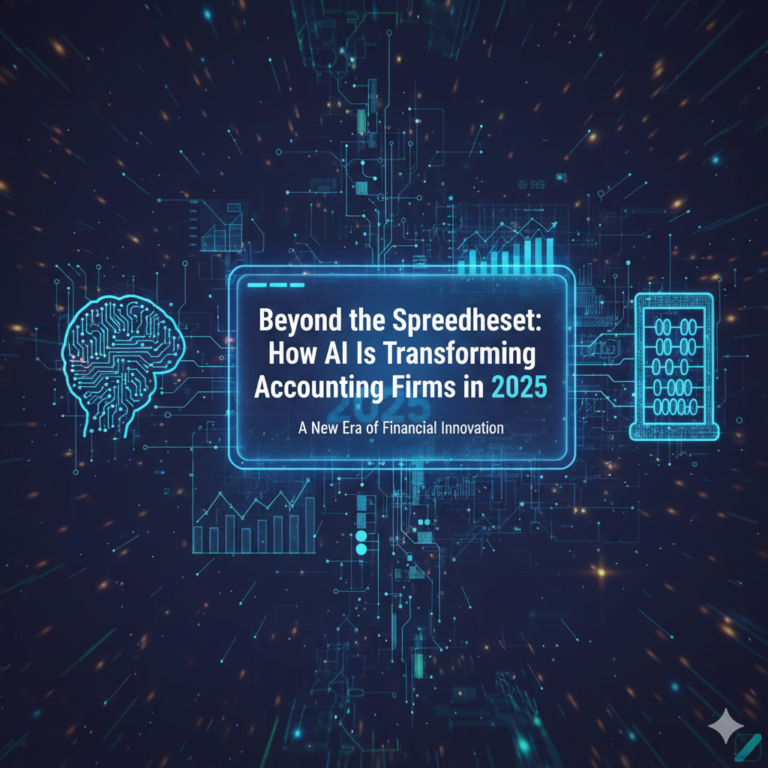Automating Trust: The Ethical Dilemma of AI in FinTech
In recent years, Artificial Intelligence (AI) has transitioned from a futuristic concept to a core pillar of financial technology (FinTech). From fraud detection to credit scoring, AI systems are reshaping how trust is established in finance. But while AI promises speed, accuracy, and efficiency, it also introduces a subtle ethical dilemma: can we automate trust without compromising fairness, transparency, or privacy?
The Rise of AI in FinTech
AI adoption in financial services has skyrocketed. Banks, neobanks, and lending platforms increasingly rely on machine learning algorithms to process applications, detect anomalies, and personalize financial recommendations. Take, for instance, AI-powered fraud detection systems that can flag suspicious transactions in real-time, preventing billions in losses annually. These systems are undeniably effective, yet they operate in a gray ethical zone: the very algorithms designed to protect us might also encode biases or deny access to financial services unfairly.
The benefits are evident. AI can streamline loan approvals, manage portfolios, and even predict market trends more efficiently than humans. For the average user, this means faster decisions, fewer errors, and more tailored financial solutions. However, as we entrust AI with more responsibility, the stakes of ethical oversight rise proportionally.
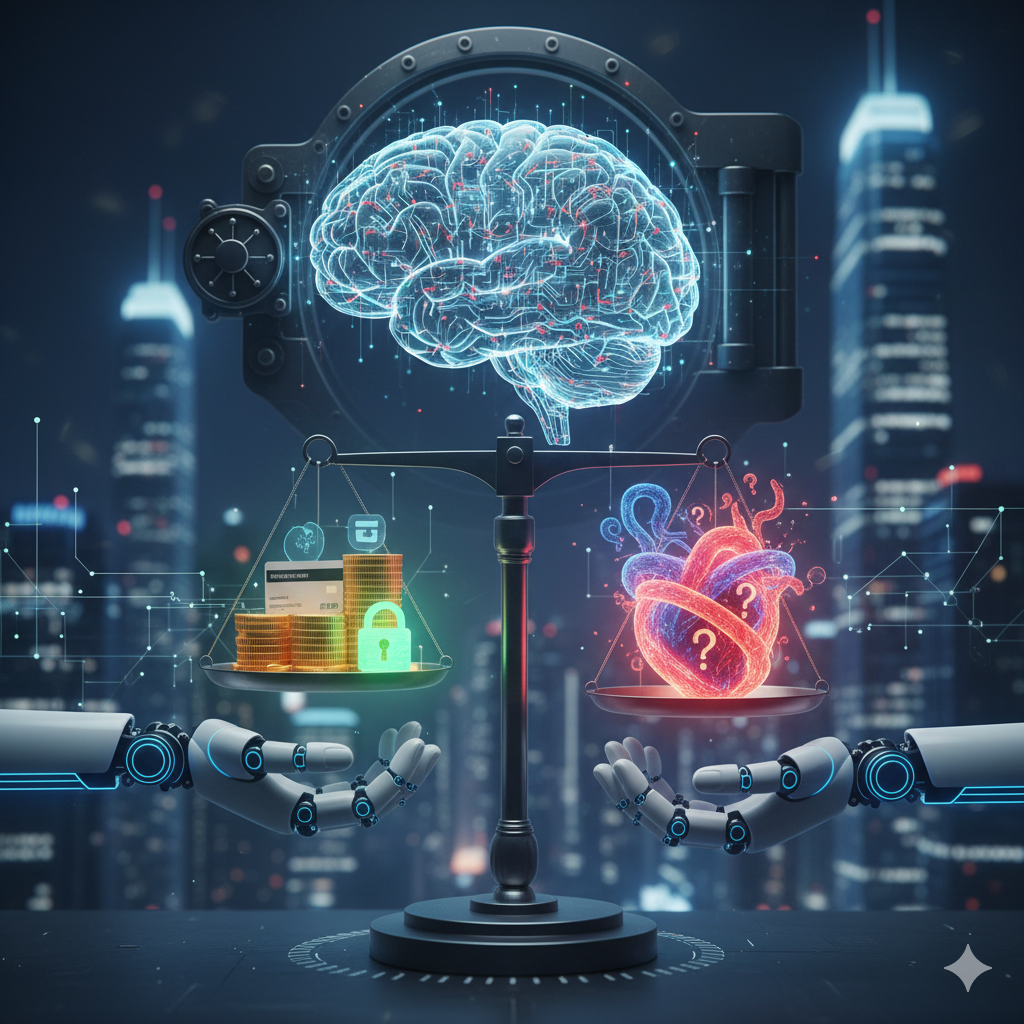
The Ethical Tightrope: Bias and Fairness
One of the most pressing ethical concerns in AI-driven FinTech is bias. Algorithms are only as unbiased as the data they learn from. Historical lending data, for instance, may reflect systemic inequalities that, if uncorrected, get perpetuated by AI models. A machine learning system that evaluates loan applicants based on such data could inadvertently discriminate against minority groups, even if the underlying decision appears objective.
Moreover, transparency becomes a challenge. Unlike humans, AI systems often operate as “black boxes,” making it difficult to explain why a particular decision was made. If a client is denied a loan, understanding the reasoning behind that decision might be impossible, leaving users frustrated and skeptical. In essence, the more automated our trust mechanisms become, the harder it is to justify them ethically.
Privacy: The Unseen Cost
AI thrives on data—massive amounts of it. From spending habits to geolocation data, financial algorithms rely on granular user information to function optimally. While this enables hyper-personalization and fraud prevention, it raises serious privacy concerns. Users may unknowingly trade personal privacy for convenience, a transaction few explicitly consent to but most implicitly accept.
Global regulations such as the EU’s General Data Protection Regulation (GDPR) and emerging AI-specific laws aim to curb misuse, yet enforcement remains inconsistent. FinTech firms navigating multiple jurisdictions face the dual challenge of innovation and compliance, often opting for practices that prioritize efficiency over user-centered ethics. The question remains: are we building AI systems that serve humans, or humans who serve AI?
Trust in a Digital World
Trust has always been central to finance. Traditionally, personal relationships with bankers, credit officers, or advisors facilitated trust. In the digital age, trust is algorithmic. We rely on apps and platforms to safeguard our money, recommend investments, and approve loans. This shift brings efficiency but also distance: humans no longer mediate every critical financial decision.
Consider a global neobank using AI to approve credit. A client in India or Germany might receive a decision in seconds, but without transparency or recourse if something goes wrong. Trust is automated, but at what ethical cost? Here lies the dilemma: AI can scale trust across millions of users, but this scaling risks diluting accountability and empathy—qualities that remain fundamentally human.
Case Studies: Realistic Scenarios
Scenario 1: Fraud Detection Success
A mid-sized European bank implements AI to monitor transaction anomalies. Within six months, fraud incidents drop by 40%, protecting both the institution and its customers. Yet, a small percentage of legitimate transactions are flagged as suspicious, frustrating clients and highlighting the ethical tension between risk mitigation and user experience.
Scenario 2: Credit Scoring Bias
An AI-powered lending platform in the U.S. denies several qualified applicants from underrepresented communities due to historical biases in training data. The company corrects the bias by integrating fairness-aware machine learning methods, demonstrating that ethical AI requires continual oversight, not just initial implementation.
Scenario 3: Data Privacy Challenge
A global FinTech startup personalizes investment advice using users’ spending patterns and social data. Customers benefit from precise recommendations, but data collection practices spark regulatory scrutiny, reminding the industry that trust is not just about outcomes—it’s also about respecting boundaries.
Regulatory Landscape
The ethical dilemma of AI in FinTech is compounded by varying regulations:
- United States: Regulatory guidance is evolving, emphasizing fairness in lending, privacy protections, and algorithmic transparency.
- European Union: GDPR and the upcoming EU AI Act impose stricter obligations, including risk assessments, documentation, and human oversight.
- Global Perspective: Different regions interpret AI ethics differently, challenging multinational FinTechs to reconcile efficiency with compliance across borders.
For companies, proactive ethical frameworks are no longer optional—they are competitive advantages. Firms that embed fairness, transparency, and accountability into AI systems are more likely to earn long-term customer trust.
Balancing Automation and Human Oversight
The future of FinTech does not require choosing between AI and human oversight; it demands integration. Hybrid approaches that combine algorithmic efficiency with human judgment offer the best path forward. For example, AI can pre-screen applications, but final decisions should involve a human reviewer when sensitive ethical trade-offs arise.
Transparency and explainability are also critical. Users should understand not just what decision was made, but why. Providing clear explanations fosters trust and reduces frustration, demonstrating that ethical AI is not about limiting innovation but enhancing it responsibly.

Toward Responsible AI in Finance
Achieving responsible AI in FinTech involves several key principles:
- Fairness: Continuously monitor and correct biases in data and algorithms.
- Transparency: Make AI decision-making understandable to users and regulators.
- Accountability: Ensure human oversight and recourse mechanisms exist.
- Privacy: Collect only necessary data and maintain strict security protocols.
- Continuous Evaluation: Regularly audit AI systems for ethical compliance and performance.
By embracing these principles, FinTech firms can leverage AI to scale trust without eroding ethical standards, demonstrating that efficiency and integrity are not mutually exclusive.
Conclusion
AI in FinTech is transforming trust from a personal, relational concept into an algorithmic, automated process. While this shift offers unparalleled speed and convenience, it also introduces ethical dilemmas around bias, privacy, and accountability. Companies that fail to navigate these challenges risk not just regulatory penalties, but the erosion of customer confidence—the very foundation of financial services.
Automating trust is not inherently unethical, but it requires careful design, oversight, and commitment to human-centric principles. The question is not whether AI should be used in finance—it is how we use it responsibly. By embedding fairness, transparency, and accountability into AI systems, we can create a future where trust is both automated and genuinely earned.

